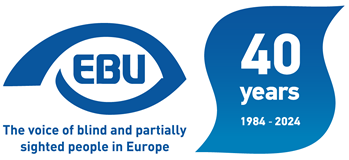Accessibility of Lifts
On 6 March the European Commission’s relevant unit informed us that they had rejected the publication of references of EN 81-70:2018 in the Official Journal of the EU under Directive 2014/33/EU on lifts and safety components for lifts, and that a likely consequence is that CEN will need to further improve the standard. In doing so, the Commission expects CEN to “carefully listen to all concerned parties”. Presumably our expressed concerns weighted in this positive outcome, although the Commission’s decision was motivated more largely by “a number of issues related to compliance of EN 81-70 with the Commission Standardisation Request M/549 and the applicable drafting rules for standards”.
Marrakesh Treaty
In the EU, still missing so far are the national measures of implementation of the Treaty for the following EU countries: Cyprus, Greece, Italy, Luxembourg, Portugal and Slovenia.
Outside the EU: no new ratification or accession to the Treaty elsewhere in Europe.
European Accessibility Act
The European Parliament plenary approved the text on 14 March. The next and final step towards the adoption of the directive is the Council’s approval. No date communicated for this yet.
Coincidentally, also on 14 March, CEN announced the publication of the EN 17161 on Accessibility following a Design for All. See the ANEC press release.
European elections 2019
- In the debate preceding the European Parliament’s plenary vote on the European Accessibility Act, the German MEP Andreas Schwab, spokesperson on Internal Market issues for the EPP Group (the main one in today’s Parliament), said in the debate preceding the vote that the next Parliament will have to give it another try at including the built environment in the scope of the EAA. This can be considered a first concrete reply to the third of 10 asks in our Statement on the European elections 2019.
- On 20 March, the European Economic and Social Committee published a report on the voting rights of persons with disabilities across the EU. Based on extensive surveys conducted with governments and disability organisations, the report concludes inter alia that in 18 EU countries, blind voters have no way of voting independently; they can only entrust somebody accompanying them to cast their vote on their behalf. We have used this development as momentum to voice again the first of our 10 asks (accessible voting).

